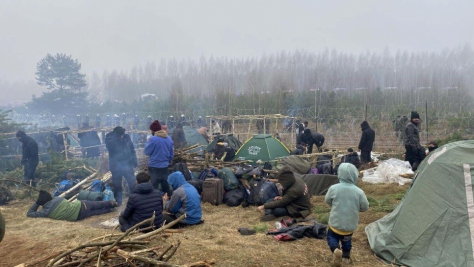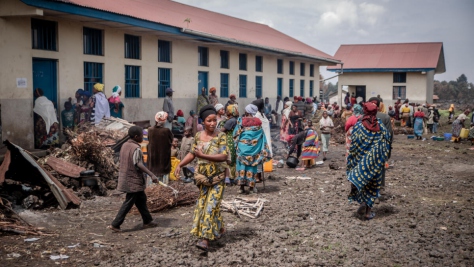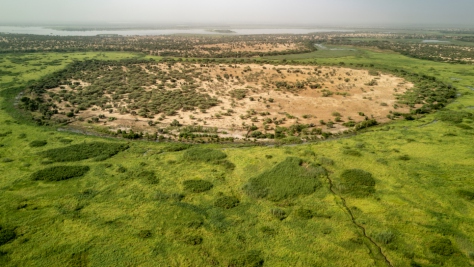Return of 2,400 Somali refugees leads to closing of third camp in Ethiopia
The voluntary return of more than 2,400 Somali refugees last week brings to more than 50,000 the number of voluntary repatriations last year and leads to the closing of a third refugee camp in Ethiopia.

ADDIS ABABA, Ethiopia, Jan. 2 (UNHCR) - The repatriation of thousands of Somali refugees from Ethiopia has continued at a steady pace, reflecting a more stable situation in parts of the east African country and leading to the closing of three of eight refugee camps.
Two convoys last week repatriated 2,412 people from Ethiopia's Daror camp to north-west Somalia, bringing the total number of refugees who returned home in 2001 to 50,216. The latest returnees received a nine-month food ration, plastic sheeting and blankets to help them restart their lives.
The Daror complex, which includes health clinics, schools, water systems and generators, and which once hosted 50,000 refugees, will be handed over by UNHCR to the local community.
Earlier last year, Teferiber and Dawarnaji camps were also closed.
Another estimated 67,000 Somalis who fled following the outbreak of widespread civil war a decade ago remain in five other camps in Ethiopia. More than half are expected to return home by June, but some 30,000 others from southern Somalia cannot be repatriated because the security situation in that part of the country remains unstable.
Related news and stories
Thousands of newly arrived Somali refugees in Ethiopia relocated to new settlement
Samira's Story
Drought brings life-threatening food shortages for refugees in Ethiopia
100,000 new Somali refugees arrive in Ethiopia in the past month, UN and partners are calling for urgent funding
UNHCR teams and partners rush assistance to some 100,000 newly arrived Somali refugees in hard-to-reach area of Ethiopia
As the Horn of Africa drought enters a sixth failed rainy season, UNHCR calls for urgent assistance
-

Assessing the Socioeconomic Impact of COVID-19 on Forcibly Displaced Populations: Kenya
12 Nov 2021 This document outlines key insights into a study about the socioeconomic impact of the COVID-19 pandemic on forcibly displaced persons in Kenya. -

IOM, UNHCR provide emergency aid to asylum-seekers and migrants at the Belarus-Poland border, call to ensure well-being of people and prevent loss of life
12 Nov 2021 -

UNHCR: World must turn COP26 words into action for forcibly displaced and stateless people
12 Nov 2021 -

Birth registration drive brings Congo's indigenous in from the shadows
11 Nov 2021 -

View the Virtual Preparatory Roundtables Programme
11 Nov 2021 -

UNHCR: Conflict, violence, climate change drove displacement higher in first half of 2021
11 Nov 2021 -

Birth registration drive brings Congo's indigenous in from the shadows
11 Nov 2021 A campaign by the Republic of the Congo and UNHCR provides birth certificates to thousands of Congolese at risk of statelessness, including indigenous people -

Report of the eighty-second meeting of the Standing Committee (15-16 September 2021)
11 Nov 2021 -

Climate change fuels conflict between fishermen and herders over scarce resources
10 Nov 2021
